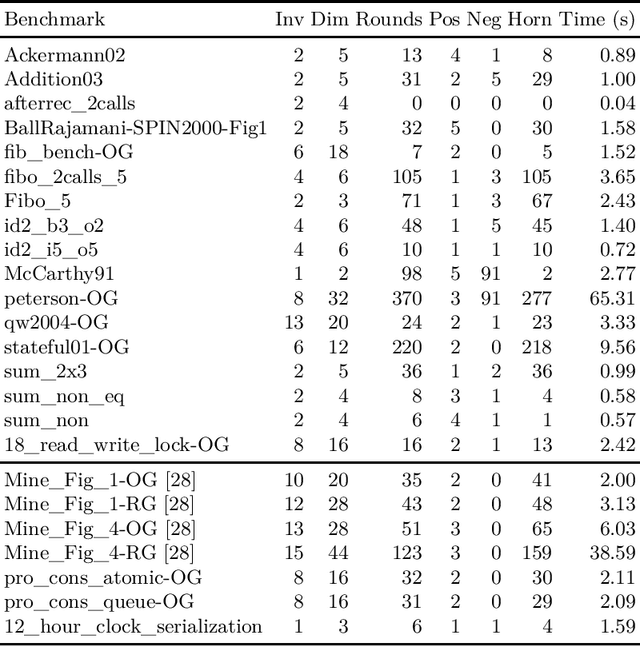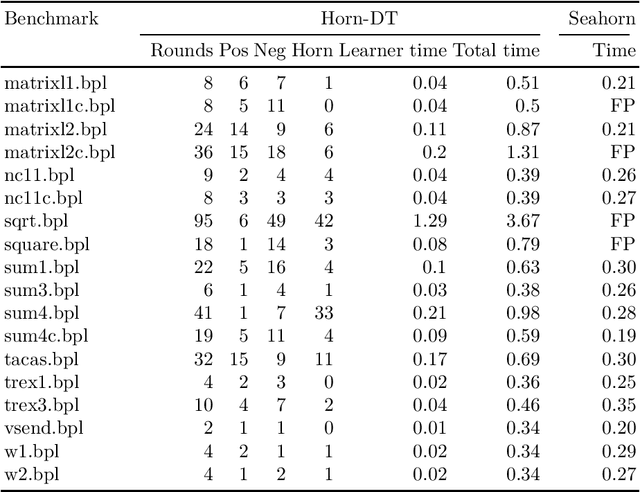Deepak D'Souza
Indian Institute of Science, Bangalore
BNSynth: Bounded Boolean Functional Synthesis
Dec 15, 2022Abstract:The automated synthesis of correct-by-construction Boolean functions from logical specifications is known as the Boolean Functional Synthesis (BFS) problem. BFS has many application areas that range from software engineering to circuit design. In this paper, we introduce a tool BNSynth, that is the first to solve the BFS problem under a given bound on the solution space. Bounding the solution space induces the synthesis of smaller functions that benefit resource constrained areas such as circuit design. BNSynth uses a counter-example guided, neural approach to solve the bounded BFS problem. Initial results show promise in synthesizing smaller solutions; we observe at least \textbf{3.2X} (and up to \textbf{24X}) improvement in the reduction of solution size on average, as compared to state of the art tools on our benchmarks. BNSynth is available on GitHub under an open source license.
Horn-ICE Learning for Synthesizing Invariants and Contracts
Dec 26, 2017



Abstract:We design learning algorithms for synthesizing invariants using Horn implication counterexamples (Horn-ICE), extending the ICE-learning model. In particular, we describe a decision-tree learning algorithm that learns from Horn-ICE samples, works in polynomial time, and uses statistical heuristics to learn small trees that satisfy the samples. Since most verification proofs can be modeled using Horn clauses, Horn-ICE learning is a more robust technique to learn inductive annotations that prove programs correct. Our experiments show that an implementation of our algorithm is able to learn adequate inductive invariants and contracts efficiently for a variety of sequential and concurrent programs.
 Add to Chrome
Add to Chrome Add to Firefox
Add to Firefox Add to Edge
Add to Edge